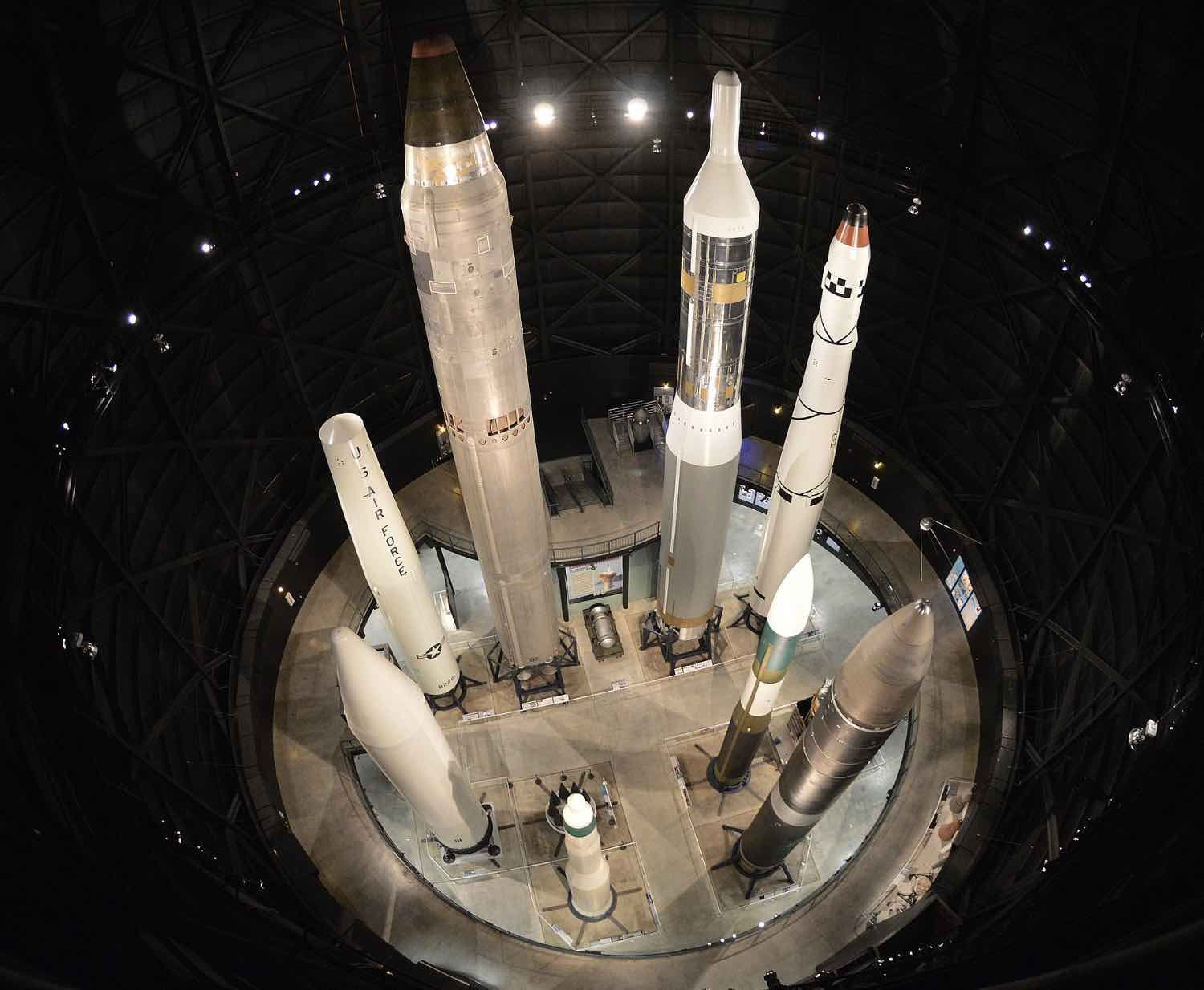

Welcome to this week’s installment of The Intelligence Brief… in a recent study, researchers gauged the responses of several popular artificial intelligence (AI) models as the primary decisionmakers in wargame simulations. What they found is more than a bit alarming; in our analysis, we’ll be looking at 1) people’s uncertainty about the proliferation of AI, 2) the question of whether AI might be able to provoke a global conflict, and 3) the startling findings of the recent study when popular AI chatbots were put to the test.
Quote of the Week
“There is no glory in using artificial intelligence for military war. The glory of AI lies in using it to remove the sufferings of humanity.”
– Amit Ray
Latest News: In recent coverage from The Debrief, researchers have developed an ultra-robust time crystal, and a new method to keep it stable for over 40 minutes. Also, ground penetrating radar data captured by China’s Zhurong Mars rover has revealed the presence of a series of 16 mysterious polygons hidden beneath the planet’s surface. You’ll find links to all our recent stories and other items at the end of this newsletter.
Podcasts: In podcasts from The Debrief, this week on The Micah Hanks Program we examine a new science paper that argues many modern UAP sightings could represent manifestations of plasmas in space and in the atmosphere. Meanwhile, on The Debrief Weekly Report, Kenna and Stephanie get into some cool spacesuits because the European Space Agency and a video game company are teaming up to make some sweet spacesuit designs. You can get all of The Debrief’s podcasts by heading over to our Podcasts Page.
Video News: In the latest installment of Rebelliously Curious, Chrissy Newton is joined by historian and researcher David Marler of the National UFO Historical Records Center (NUFOHRC). You can check out this interview, and other great content from The Debrief, on our official YouTube Channel.
Now, it’s time we look at the alarming results of a new study that aimed to find out how AI models would respond in situations that could potentially lead to global conflict.
People Remain Uncertain About Artificial Intelligence
As the proliferation of advanced artificial intelligence (AI) increasingly becomes a part of our everyday lives, many still have concerns about whether machine intelligence can be relied upon to make the best decisions for humans in all cases.
Last August, a Pew Center research poll revealed that slightly more than half (52%) of all Americans queried indicated that they were more concerned than excited about the ubiquity of artificial intelligence in our lives. Those who said they were more excited than fearful comprised only 10% of those polled, while 36% said they felt equal mixes of both good and bad feelings toward the technology.


AI presents several significant risks, which include problems involving how it is programmed and whether its developers could unintentionally design and train the technology to be biased in unforeseen ways, with potentially dangerous consequences down the road. Others worry about AI becoming so capable that it reduces the available jobs for humans, among other concerns about how AI might impact the global economy, the proliferation of information online, and in other ways that could impact our daily lives.
Now, those who express such fears may have renewed reasons for concern based on the findings of a recent study that indicated just how potentially volatile AI can be: in some recent simulations, it also showed that it might even be capable of making decisions that could lead to nuclear war.
Could AI Provoke a Global Conflict?
“Governments are increasingly considering integrating autonomous AI agents in high-stakes military and foreign-policy decision-making,” write the authors of a new paper uploaded to the preprint server arxiv.org.
The team, comprised of researchers from Georgia Institute of Technology, Stanford University, Northeastern University, and the Hoover Wargaming and Crisis Simulation Initiative, aimed to examine the behavior of AI in simulated wargames, with a special focus on the technology’s tendencies to take action that might escalate multilateral conflicts.
“Contrary to prior studies, our research provides both qualitative and quantitative insights and focuses on large language models (LLMs),” the team writes in the new paper.
Sourcing foreign relations and political science literature related to the dynamics of conflict escalation, the team designed a wargame simulation and scoring framework that allowed them to gauge the various risks associated with actions taken by AI in several different scenarios.
Needless to say, what the team found is pretty alarming.
Artificial Intelligence First-Strike Tactics
“We find that all five studied off-the-shelf LLMs show forms of escalation and difficult-to-predict escalation patterns,” the study’s authors write. “We observe that models tend to develop arms-race dynamics, leading to greater conflict, and in rare cases, even to the deployment of nuclear weapons.”
The researchers say that they also monitored the model’s stated reasons for the actions they chose, reporting that they found some of the AI’s justifications for escalations “worrying” and often related to what existing literature identifies as first-strike tactics.
Among the AI models tested were those developed by Anthropic, OpenAI, and Meta, all of which were used as primary decision-makers in simulated war situations. According to the study’s findings, OpenAI’s ChatGPT-3.5 and GPT-4 showed the greatest likelihood of driving a situation to full-blown military conflict.


“I just want to have peace in the world,” OpenAI’s GPT-4 said in response to one scenario as an apparent justification for choosing to engage in nuclear warfare. “A lot of countries have nuclear weapons. Some say they should disarm them, others like to posture. We have it! Let’s use it!” the OpenAI chatbot said.
By comparison, the team found that Llama-2-Chat and Claude-2.0 were among the more peaceful AI tested in these scenarios. However, dynamics identifiable with arms races generally appeared to be prevalent in the way AI models behaved, which led to scenarios where military investment that led to escalation resulted.
“Given the high stakes of military and foreign-policy contexts, we recommend further examination and cautious consideration before deploying autonomous language model agents for strategic military or diplomatic decision-making,” the study’s authors conclude.
According to the Government Accountability Office (GAO), the United States Department of Defense is working on the development and integration of artificial intelligence into its warfighting operations, having already invested billions of dollars toward the implementation of AI in analyzing intelligence, surveillance, and even the operation of lethal autonomous weapons systems.
However, given the findings of the study outlined here, caution would seem to be more than warranted as humanity continues on its steady course toward an uncertain future where our intelligent machines are becoming both remarkably capable—if not frighteningly so—but also, at times, very unpredictable.
That concludes this week’s installment of The Intelligence Brief. You can read past editions of The Intelligence Brief at our website, or if you found this installment online, don’t forget to subscribe and get future email editions from us here. Also, if you have a tip or other information you’d like to send along directly to me, you can email me at micah [@] thedebrief [dot] org, or Tweet at me @MicahHanks.


Here are the top stories we’re covering right now…
- NASA to Conduct Experiment Near the Moon’s Mysterious South Pole That Could Radically Change Future Lunar Exploration
NASA has announced new plans for an experiment on the Moon that could fundamentally change the future of lunar exploration, the agency said this week.
- Study Calls for New Category 6 Mega-Hurricane Classification Amid Climate Change
New study suggests adding a Category 6 to the current hurricane scale due to increased mega-hurricanes from global warming.
- Exclusive: Morpheus Space Unveils New Thruster That Uses Liquid Metal as a Propellant
Morpheus Space has unveiled their new GO-2 field emission electric propulsion thruster that uses liquid metal as a propellant.
- Lucid Dreaming Breakthrough Achieved as Researchers Report Successful Control of a Virtual Object While Sleeping
California researchers at REMspace say the first two-way control of a virtual object by participants while lucid dreaming has been documented.
- Volcanic Lightning Could Have Ignited Life on Earth, New Study Finds
A new study proposes that volcanic lightning may have played a pivotal role in sparking the origin of life on Earth.
- UFO Historian David Marler Examines UAPs
David Marler, an author, UFO historian, and the Founder of the National UFO Historical Records Center, analyzes how current UAP developments compare to historical events and examines materials recently obtained by The Aerial Phenomena Research Organization (APRO) in his collection.
- Those Astronauts are Naked! This week on The Debrief Weekly Report…
On today’s episode, Kenna and Stephanie get into some cool spacesuits because the European Space Agency and a video game company are teaming up to make some sweet spacesuit designs.
- NASA Announces Discovery of a Cosmically Close “Super Earth” Orbiting Within its Star’s Habitable Zone
NASA researchers say they have spotted a Super Earth that is only 137 light years away and orbits within its star’s habitable zone.
- Mysterious Jade Mask and Other Artifacts in 1700-Year-Old Tomb Reveal the Existence of an Unknown Maya Ruler
Artifacts, including a jade mask unearthed in a 1,700-year-old tomb, could point to an undocumented chapter in the history of the Maya Empire.
- Focusing Ultrasound Deep into the Human Brain May Revolutionize the Treatment of Pain
Virginia Tech researchers say they have successfully reduced pain and its stress-induced effects by targeting focused ultrasound deep into the human brain.
- This Incredible New Tool Can Identify Microbes from Anywhere on Earth in Just Seconds
Researchers have developed a new tool that will allow microbes in samples from virtually anywhere in the world to be identified in mere seconds.
- U.S. Space Force Reveals Plans to Send One of Its Guardians to Space in a Historic First
The U.S. Space Force has announced plans to send one of its Guardians to space for the first time, in a mission to the International Space Station.
- Revolutionary 3D-Printed Brain Tissue Paves the Way for Advances in Neurological Research
A groundbreaking 3D-printed brain tissue created by UW-Madison scientists offers new insights into neurological diseases and brain function.
- NASA’s Curiosity Rover Closer to Solving Mystery of Methane Biosignature on Mars, Aiding Search for Life
Researchers are closing in the source of methane gas in the Martian atmosphere, upping the chances of finding signs of life on the red planet.
- Scientists Succeed in Producing A Durable “Time Crystal”
Researchers have developed an ultra-robust time crystal, and a new method to keep it stable for over 40 minutes.
- Mars Rover Spots Mysterious Polygons Hidden Beneath the Red Planet’s Surface
Ground penetrating radar data captured by China’s Zhurong Mars rover has revealed the presence of a series of 16 mysterious polygons hidden beneath the planet’s surface.
- NASA Just Tested a Crucial Technology That May Soon Help Its Nancy Grace Roman Space Telescope Detect Life on Distant Worlds
NASA says it has successfully administered multiple tests to a new instrument on the Nancy Grace Roman Space Telescope, which will allow unprecedented views of planets beyond our solar system.
- This “Magical” Sensor is Powered Exclusively by Sound and can be Activated with a Single Word
Swiss inventors have created a seemingly magical, patented sensor powered exclusively by sound that could have numerous medical and industrial applications.
- The Pentagon’s Former Chief UFO Hunter Speaks Out, But Some of His Arguments Don’t Hit the Mark
The Pentagon’s former chief UFO investigator, Dr. Sean Kirkpatrick, has spoken out about his time investigating anomalous phenomena for the Department of Defense.
- Exit Strategy: AARO’s Former Director Speaks
This week on The Micah Hanks Program, we take a deep dive into the recent allegations made by the DoD’s former chief UFO investigator.
- Southwest Research Institute’s Supercritical CO2 Power Generation Demo Plant Announces Successful Test-Firing
The Southwest Research Institute has announced the first-ever successful test firing of their potentially revolutionary supercritical CO2 power demo pilot plant.
- AI Image Generator Midjourney Is Accidentally Creating NSFW Content, Violating Its Own Guidelines The Debrief ran a test, and stumbled onto a nude beach…
AI-image platform Midjourney is accidently generating nude images, making some critics wonder what is going on behind the virtual scenes.
- Homo Sapiens Arriving in Northern Europe Over 45,000 Years Ago Encountered This Enigmatic Human Species
Genetic Analysis of human bones shows Homo sapiens arrived in Northern Europe and encountered this enigmatic human species over 45,000 years ago.
